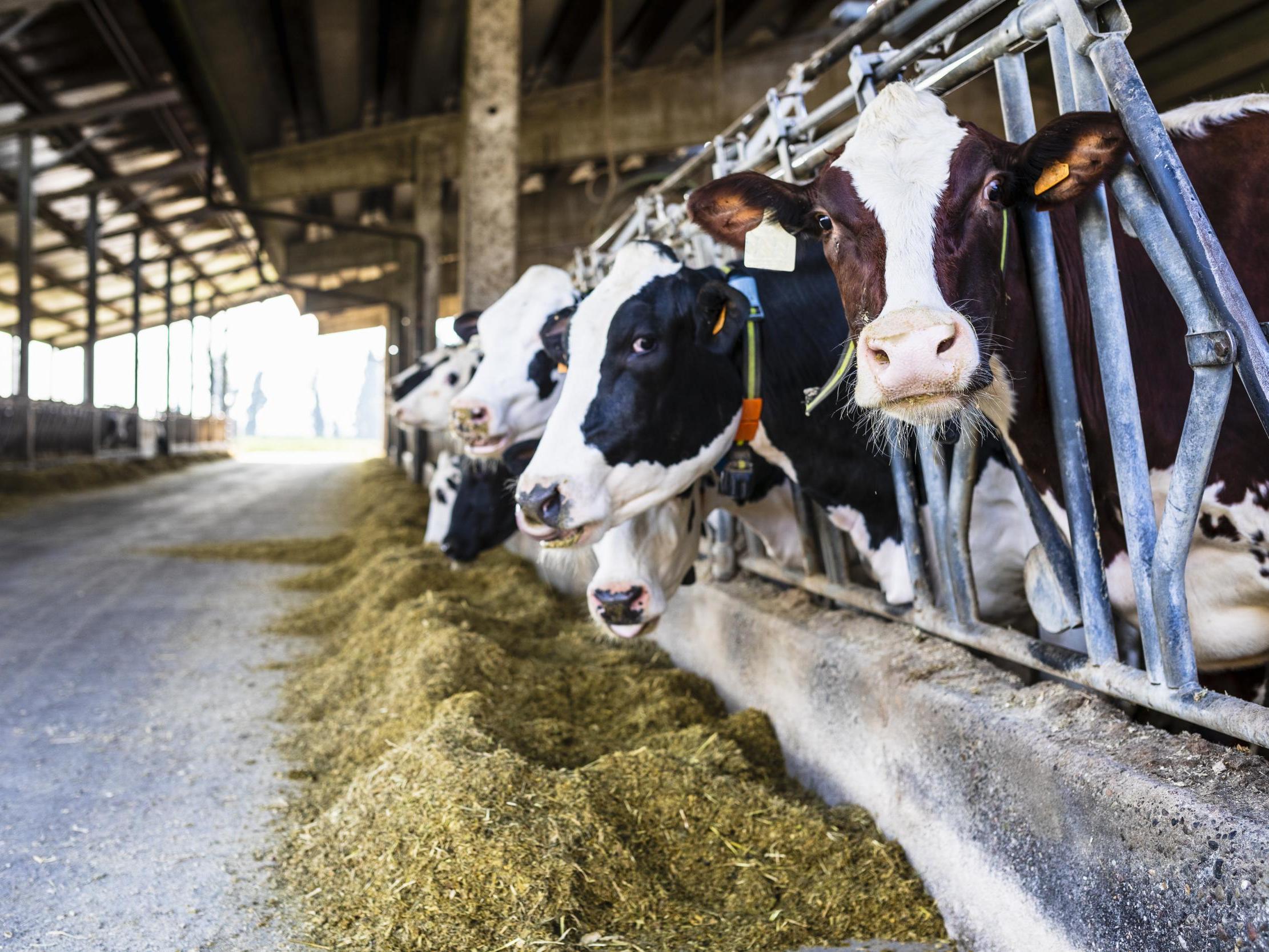Households will need to reduce meat eating by half to reach climate targets, says report
In 2019 the Committee on Climate Change estimated meat consumption would only need to fall by a fifth

Your support helps us to tell the story
From reproductive rights to climate change to Big Tech, The Independent is on the ground when the story is developing. Whether it's investigating the financials of Elon Musk's pro-Trump PAC or producing our latest documentary, 'The A Word', which shines a light on the American women fighting for reproductive rights, we know how important it is to parse out the facts from the messaging.
At such a critical moment in US history, we need reporters on the ground. Your donation allows us to keep sending journalists to speak to both sides of the story.
The Independent is trusted by Americans across the entire political spectrum. And unlike many other quality news outlets, we choose not to lock Americans out of our reporting and analysis with paywalls. We believe quality journalism should be available to everyone, paid for by those who can afford it.
Your support makes all the difference.Households in Britain will have to eat far less meat and dairy than previously suggested in order to meet UK climate targets, a government-funded report has found.
People will be required to reduce their consumption by up to half in order for the UK to be carbon neutral by 2050, says the Energy Systems (ESC) not-for-profit organisation.
The ESC was created by the government to help accelerate its transition to low-carbon energy but now the group estimate that the public must move to a far more plant-based diet in order to meet targets.
This is even if the country expands into other green initiatives such as wind power or solar farms.
In 2019 the Committee on Climate Change estimated that overall consumption of beef, lamb and dairy products would only need to fall by a fifth to meet climate targets.
It calculated that cutting meat and dairy consumption by just 20 per cent would successfully save eight million tonnes of carbon dioxide by 2050.
But the ESC says people need to look at their dietary choices further, as well in order to make key lifestyle changes.
The ESC said research showed that the public was willing to accept electric cars and electric heating “as long as these can deliver the same experiences as before” but that people were more “resistant and emotional” to changes around their diet.
Despite being unpopular, it added, this was one of “two key lifestyle changes [that] needs to be achieved.”
About 15 per cent of global greenhouse emissions come from livestock, partly from methane produced by cows, sheep and goats but also from converting forests to grow crops to feed animals.
The other proposed change in the report, titled ‘Innovating to Net Zero’, was curbing people’s air travel.
In August 2019 MPs warned the government the UK will miss its legally binding net-zero 2050 target with “dire consequences” unless climate policies are rapidly implemented.
A 2018 study found eating a vegan diet could be the “single biggest way” to reduce your environmental impact on earth.
Researchers at the University of Oxford found that cutting meat and dairy products from your diet could reduce an individual's carbon footprint from food by up to 73 per cent.
If everyone stopped eating these foods, they found that global farmland use could be reduced by 75 per cent, an area equivalent to the size of the US, China, Australia and the EU combined.
Join our commenting forum
Join thought-provoking conversations, follow other Independent readers and see their replies
Comments